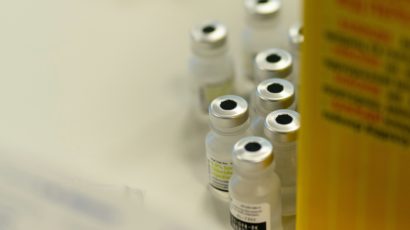Posted by Dr Michelle Wright
Menopause and taking positive steps is the theme of this week’s Health Matters. Last time we talked about the typical symptoms and health effects of menopause. Today, what can be done about all of these: some positive steps people can take to help them through this period of change. And I think the first is to start with good self-care. Prioritise sleep, physical activity, and a healthy balanced diet – these are the cornerstones to good physical and mental health in general.
In menopause, ensuring a diet rich in calcium can help to protect bones. And exercise is also important. I’m an advocate of ‘moving more’, ‘moving faster’ but also ‘moving stronger’. Keeping muscle strength is especially important to protect bones.
Think about those unhealthy habits: limit alcohol and quit smoking. Alcohol plays havoc with sleep and can make night sweats even worse. Smoking increases the risk of cardiovascular disease and cancer.
Finding ways to relax by doing something you enjoy can help to reduce stress levels and lift mood. And also take advantage of the power of human connection: spending time with people who matter can increase your ‘happy’ hormones and help you feel better.
Hormone Replacement Therapy
And talking of hormones, hormone replacement therapy – HRT – can help many people. There’s been so much bad press about HRT over recent years – particularly concerns over an increased risk of breast cancer.
But we now know there’s very low, or no, increased risk of breast cancer when using combined HRT comprising, in conjunction with oestrogen, micronized progesterone (progesterone that’s chemically and structurally identical to human progesterone), or progesterone-releasing intrauterine systems like the Mirena coil, particularly when HRT is used for less than 5 years. In fact, overweight and obesity, smoking and alcohol consumption are much bigger breast cancer risk factors.
We also know that HRT improves menopausal symptoms, it reduces the risk of osteoporosis and cardiovascular disease and also reduces the risk of type 2 diabetes, osteoarthritis, bowel cancer and depression.
Other options
Of course, HRT isn’t for everyone – some people aren’t able to take it – so it’s always best to have an individualised discussion with your doctor about your personal situation. If you are unable to take HRT, or you don’t want to take it, there are various non-hormonal drugs that may help with hot flushes including gabapentin and pregabalin. But these aren’t rectifying the low hormone levels.
In terms of helping with psychological symptoms related to the menopause, just a note to say there’s no evidence antidepressants help here – HRT has the best evidence base for these. There are some herbal remedies like St John’s Wort that we know improve mood but again, they’re not addressing the root cause of the problem – the low hormone levels.
What else could help?
Other practices like aromatherapy and acupuncture may be beneficial for general relaxation and well-being and some people get symptom relief from these. And some people also benefit from talking therapies including cognitive behavioural therapy and counselling.
And finally, I’d add that it’s important to raise awareness around the effects of the menopause and perimenopause – how it impacts mood, anxiety, energy levels and physical health. This means that anyone around someone going through it can understand a bit more and be more supportive. Let’s remember that the menopause isn’t a disease, it’s a natural process that people go through.





